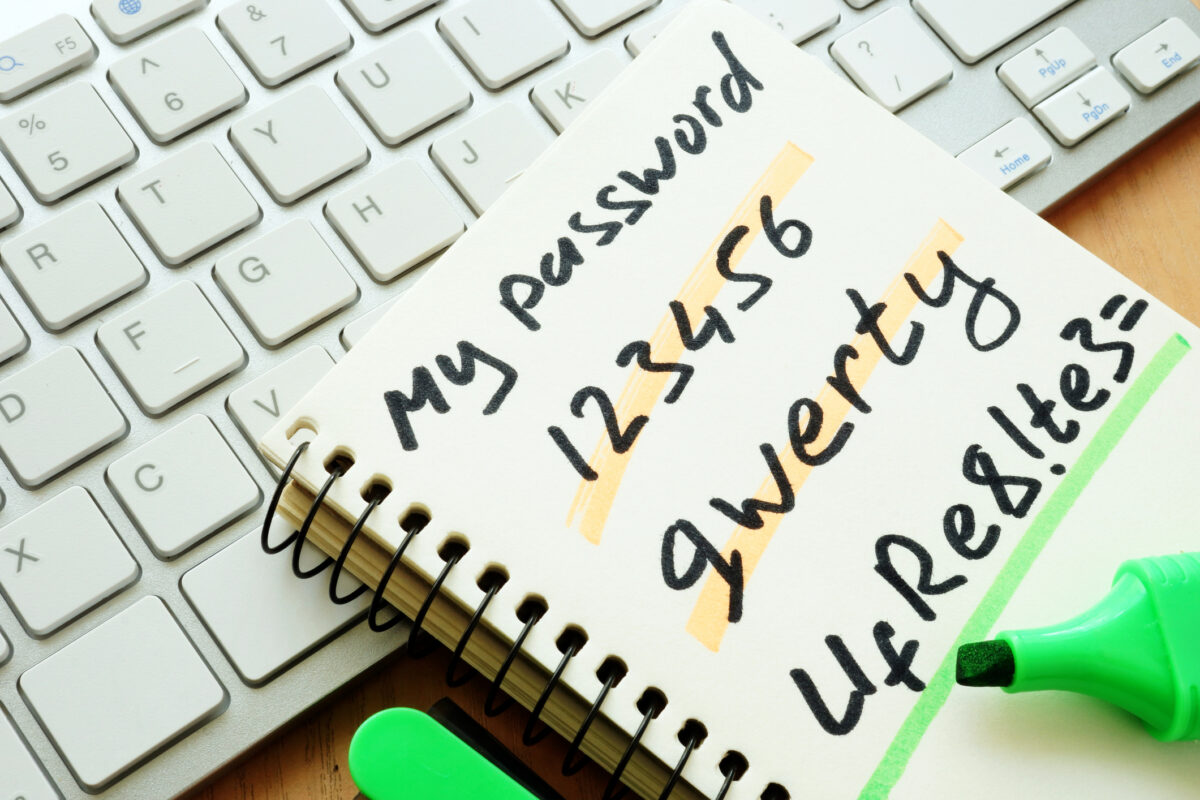The Do’s and Don’ts of Password Security
Passwords are the least secure and most often compromised method of security. So, how can you best prevent nefarious hackers from getting your information? We’ll go over some quick and easy methods to implement that’ll help protect yourself online.

Passwords are the least secure and most often compromised method of security. So, how can you best prevent nefarious hackers from getting your information? We’ll go over some quick and easy methods to implement that’ll help protect yourself online.
The Do’s
Complicated Passwords
More complicated passwords are more secure. A password that’s only 4 digits long (is case sensitive and includes numbers and special characters) has a total of 56,693,520 possible different combinations. Although that may seem like a lot, a password that’s 14 digits long (with the same characteristics) has 4,160,033,323,045,981,400,000,000,000! Many hackers use a “brute force” method, using computers to run through thousands of different password combinations at a time, hoping to get lucky and find the right one. Using a 14-digit password that uses numbers, special characters, and upper and lowercase letters will take the hacker roughly 200 million years to break- so the hacker wont get into your account anytime soon!
Different Passwords
If you’re using a complicated password without any identifiable information, you’re already on the right track! But you also need to make sure you aren’t using the same password across multiple websites and accounts. Data breaches unfortunately happen, and when they do, you want them to affect you as little as possible. If you use the same password across multiple sites, a single data breach would allow hackers to get into other sites that share that same password. By using different passwords across different accounts and websites, you can help limit the damage of a data breach.
Two-Factor Authentication
Two-Factor Authentication (2FA) is a type of security method that requires two different types of authentication. You’ll need your normal login information like an email and a password as well as something that confirms that it’s you who’s trying to login. This might be a code sent through an email, text message, or phone call or by confirming through a 2FA app like Microsoft or Google Authenticator.
Now, why does 2FA work? Well, if some nefarious hacker gets ahold of your login information and tries to login to your account, they’ll need to get past your 2FA.If your 2FA is confirming your login through an app on your phone, they won’t be able to access your account without your phone- so make sure you don’t lose it!
The Don’ts
Sharing Passwords
Don’t do it! Not through email, in-person, or ever. Passwords are for you and you alone. No one with good intentions will ask for your password. Keep your passwords to yourself and you’re already off to a great start!
Identifiable Information
As cute as your dog is, you shouldn’t be using their name or birthday in your password! It’s best to avoid using information that someone can easily find about you online like a loved one’s name or birthdate, the town you grew up in, or your favorite sports team.
Wrapping It Up
By using different, complicated passwords without identifiable information and setting up 2FA, you can best protect yourself on the web. If you have any more questions or want to talk about online security, feel free to come chat with us at Dunham Connect!
Great article on password security! The dos and don’ts you’ve outlined are practical and crucial for maintaining strong security. Thanks for sharing these valuable tips!